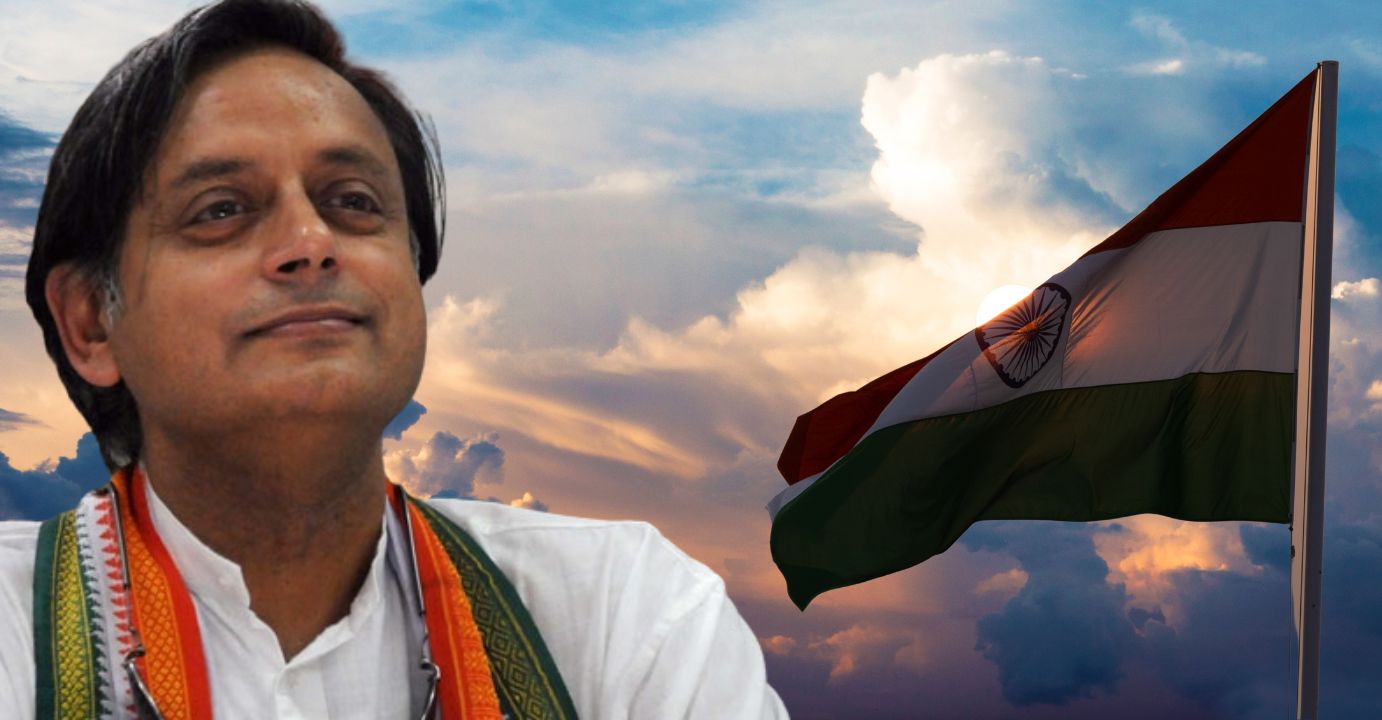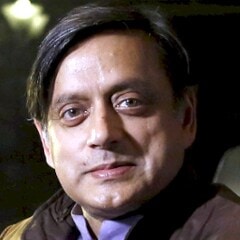Tharoor Line | Don't imitate Pak's prejudices

Mail This Article
This week has begun in a paroxysm of celebration of the 75th anniversary of our Independence. Indeed there is much to celebrate. A nation that came into being with a literacy rate of 13%, a life expectancy of 27, a prevailing economic rate of growth averaging below 0.01% since 1900, and with 90% of its population living below the poverty line, has, over three-quarters of a century, transformed itself into one of the most successful states of the developing world. Literacy stands at 82%, life expectancy has gone past the Biblical “three score and ten” (70), the economic growth rate is expected to cross 6% this year and has been higher in the past, and though we still have too many “daridra Narayans”, the percentage of our population below the poverty line is 20%, not 90%. We have much more to do to achieve the dreams of every Indian, but that we have made progress is undeniable.
Yet, when we look back at that midnight moment 75 years ago when Independent India was born, we cannot forget that it came into being amid horror and suffering. The partition of the country into Pakistan and India -- the conclusion of an expedient British policy of “divide and rule” that transformed itself into a shameful “divide and quit”— was accompanied by the butchering of 1 million people for no reason other than their religion, the mass displacement and migration of 13 million, and lakhs of crores of rupees of property destroyed or damaged. The pitiless savagery amid which India became free made Independence both a birth and an abortion. One legacy of that was the lingering hostility with Pakistan that, over 75 years, has witnessed four wars, countless verbal and physical attacks, and scores of militants and terrorists sent across the border by Pakistan to inflict a “death by a thousand cuts” upon India. The resultant simmering hatred has, in recent years, spilled over in our own country into growing demonization of the Muslim community in India itself.
The irony is that when Pakistan, founded as a homeland for Indian Muslims, declared itself an Islamic state, India resolutely remained a secular and pluralist country, home to people of all faiths, castes, languages and creeds. While Pakistan has largely expelled most of its non-Muslims – now reduced to less than 3% of that country’s population – secular India could rightly point to the fact that it was above such communal pettiness, and minorities flourished in all walks of life in our society. Today, though, as we turn 75, we have to honestly admit that India has begun to imitate its neighbour’s prejudices, stoking majoritarian intolerance in the rampant Islamophobia of our present ruling party and its fellow travellers.
The list of recent examples of behaviour unworthy of a secular state is long, and adds up to a litany, a lament of Muslim harassment since 2014. Between our state and central governments, we have imposed bans on beef, closed halal meat shops and intimidated their owners, interfered with the offering of namaz in unauthorised locations, threatened Muslim shopkeepers operating near Hindu temples, challenged the wearing of the hijab and turned a blind eye to “DharmSansads” calling for genocide. The state governments and police forces have shown a marked propensity to disfavour Muslims whenever communal violence breaks out, and now some of them have started dispensing “bulldozer justice”. The judiciary has not been able to compensate for one sided state action; indeed, the persecutors of Muslims are increasingly turning the courts for support, with multiple challenges to the Places of Worship Act, accompanied by judicial applications to dig up masjids and mosques. In India today, Muslims are massively under-represented in politics, the legislatures and the civil services and over-represented in the prisons.
Meanwhile top political leaders regularly assail, from national podiums and platforms, the appearance, clothing, habits and loyalties of Indian Muslims. Across northern India, the demonisation of Indian Muslims proceeds apace, with rampant discrimination against them in recruitment, in residential rentals, and in the marketplace, and “open season” to bait and taunt them on television and social media. Conversion is stigmatised and in some states restricted or even banned; romance or even fraternisation across the religious divide is denounced as “love jihad”. This stigmatisation raises the obvious question: even as we lament the division of the country 75 years ago and the PM asks us to treat August 14 as “Partition Horrors Remembrance Day”, doesn’t India’s own recent conduct vindicate Jinnah’s bigoted “two-nation theory”and justify the Partition we today decry? And if so, can we truly claim to be the country that Mahatma Gandhi fought to free?

Christian heroes of freedom struggle
The official pantheon of nationalist heroes regularly cited by our government and political establishment often includes mainly Hindu and Sikh names, with the occasional Muslim, Dalit and Parsi ones, and even a handful of Britons, but almost never any Indian Christians. Yet we in Kerala, whose Christian community goes back to the first century after Christ, need to rectify that record. We should recall and celebrate heroes like Thevarthundiyil Titus of Maramon, or “Titusji” (as the Mahatma dubbed him), the only Christian who marched with Gandhiji to Dandi; A J John, who became Chief Minister of Travancore-Cochin State (and later Governor of Madras); Annie Mascrene, the first woman member of the Travancore Assembly whose fiery speeches have left a lasting record of nationalist courage; T M Varghese, one of the founders of the Travancore State Congress Party; George Joseph, who was sent to England by the Home Rule movement to agitate for freedom and who led the Vaikom Satyagraha; P T Chacko, a student leader in Travancore who led agitations against colonial rule; and D C Kizhekemuri, nationalist writer and publisher, whose legacy lives on in DC Books. And how can Malayala Manorama not hail its own legendary editor K C Mammen Mappillai, who agitated for freedom and was an outspoken member of Travacore’s Sree Moolam popular assembly?


